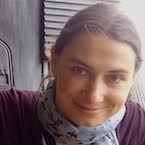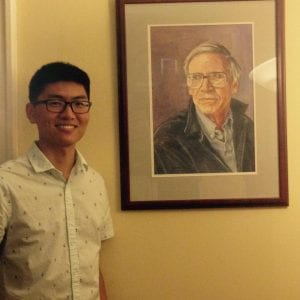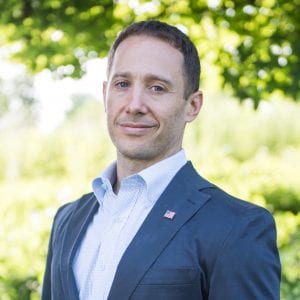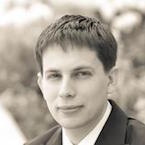 Michael Weisberg is the co-director of the Penn Laboratory for Understanding Science. He is Professor and Chair of Philosophy. Professor Weisberg’s research focuses on the philosophy of science, especially the role of idealization in biological and chemical modeling, the division of cognitive labor, and the public understanding of science. Learn more about Professor Weisberg here.
Michael Weisberg is the co-director of the Penn Laboratory for Understanding Science. He is Professor and Chair of Philosophy. Professor Weisberg’s research focuses on the philosophy of science, especially the role of idealization in biological and chemical modeling, the division of cognitive labor, and the public understanding of science. Learn more about Professor Weisberg here.
 Deena Skolnick Weisberg is Assistant Professor in the Department of Psychological and Brain Sciences at Villanova University, where she directs the Scientific Thinking and Representation (STAR) Laboratory. She is also the co-director of the Pennsylvania Laboratory for Understanding Science (PLUS). She earned her Ph.D. in Psychology from Yale University and received postdoctoral training at Rutgers University and at Temple University. Her research interests include scientific thinking and reasoning in children and adults, the development of imaginative cognition, and the roles that the imagination plays in learning. Her work has been published in a variety of scholarly journals, including Science and Cognition
Deena Skolnick Weisberg is Assistant Professor in the Department of Psychological and Brain Sciences at Villanova University, where she directs the Scientific Thinking and Representation (STAR) Laboratory. She is also the co-director of the Pennsylvania Laboratory for Understanding Science (PLUS). She earned her Ph.D. in Psychology from Yale University and received postdoctoral training at Rutgers University and at Temple University. Her research interests include scientific thinking and reasoning in children and adults, the development of imaginative cognition, and the roles that the imagination plays in learning. Her work has been published in a variety of scholarly journals, including Science and Cognition
 Asheley R. Landrum is an assistant professor at Texas Tech University. Her research examines the development of mechanisms behind trust and social learning, bridging work from educational, social, cognitive, and development psychology as well as communication research and public policy. Her work has appeared in journals such as Trends in Cognitive Sciences, Developmental Science, and Cognition. Learn more about Asheley here.
Asheley R. Landrum is an assistant professor at Texas Tech University. Her research examines the development of mechanisms behind trust and social learning, bridging work from educational, social, cognitive, and development psychology as well as communication research and public policy. Her work has appeared in journals such as Trends in Cognitive Sciences, Developmental Science, and Cognition. Learn more about Asheley here.
 Emlen Metz recently completed a PhD in psychology at Penn and is currently a post-doc at UC Berkeley working on scientific thinking and science education with physicist and Nobel Laureate Saul Perlmutter. She is interested in how people use multiple frameworks of explanation and evidence for deciding what to believe and wants to develop tools to improve epistemological reasoning. Public conceptions of the origins of species offer a particularly compelling case study of conflict between two epistemic frameworks (religion and science) which offer two competing explanations (creation vs. natural selection). In hopes of better understanding the similarities and differences between lay, scientific, and philosophical epistemic frameworks, she is also pursuing a Masters in Philosophy.
Emlen Metz recently completed a PhD in psychology at Penn and is currently a post-doc at UC Berkeley working on scientific thinking and science education with physicist and Nobel Laureate Saul Perlmutter. She is interested in how people use multiple frameworks of explanation and evidence for deciding what to believe and wants to develop tools to improve epistemological reasoning. Public conceptions of the origins of species offer a particularly compelling case study of conflict between two epistemic frameworks (religion and science) which offer two competing explanations (creation vs. natural selection). In hopes of better understanding the similarities and differences between lay, scientific, and philosophical epistemic frameworks, she is also pursuing a Masters in Philosophy.
 Mingjun Zhang is a fourth-year Ph.D. student in the Department of Philosophy at the University of Pennsylvania. Prior to arriving at Penn, he received an M.A. degree in philosophy and a B.S. degree in chemistry from Tsinghua University in Beijing, China. He is mainly interested in the philosophy of biology, the philosophy of ecology, and public understanding of evolution. Now he is working on his dissertation, “Understanding Patterns in Ecology”, which concerns some conceptual and methodological issues in the study of ecological patterns. He also participates in a project on public understanding of evolution in China.
Mingjun Zhang is a fourth-year Ph.D. student in the Department of Philosophy at the University of Pennsylvania. Prior to arriving at Penn, he received an M.A. degree in philosophy and a B.S. degree in chemistry from Tsinghua University in Beijing, China. He is mainly interested in the philosophy of biology, the philosophy of ecology, and public understanding of evolution. Now he is working on his dissertation, “Understanding Patterns in Ecology”, which concerns some conceptual and methodological issues in the study of ecological patterns. He also participates in a project on public understanding of evolution in China.
 Jesse Hamilton is a graduate student pursuing a Master of Liberal Arts. His academic interests include the public’s understanding of science (specifically evolution and climate change) and applied ethics in the military and business. Prior to coming to Penn, Jesse spent time in the U.S. Army, finance, and consulting. In his spare time, he enjoys reading, exercising, playing piano, and spending time with family and friends.
Jesse Hamilton is a graduate student pursuing a Master of Liberal Arts. His academic interests include the public’s understanding of science (specifically evolution and climate change) and applied ethics in the military and business. Prior to coming to Penn, Jesse spent time in the U.S. Army, finance, and consulting. In his spare time, he enjoys reading, exercising, playing piano, and spending time with family and friends.
Alumni
 Carlos Santana is a philosopher of science and environmental ethicist interested in how the sciences can contribute to good policymaking. He received his PhD in Philosophy from Penn in 2016 and is currently Assistant Professor in the Department of Philosophy at the University of Utah.
Carlos Santana is a philosopher of science and environmental ethicist interested in how the sciences can contribute to good policymaking. He received his PhD in Philosophy from Penn in 2016 and is currently Assistant Professor in the Department of Philosophy at the University of Utah.